👁🗨
The Changeling
I’m fascinated by the idea of changelings. Babies are replaced with fairies or something not quite human. In the 1935 film version of A Midsummer Night’s Dream, the fairy queen Titania has a human child among her woodland family. Her husband King Oberon wants the child for one of his knights, but she refuses. These scenes of Titania with little fairies are among my all time favorites. The film itself just looks enchanted: glistening gossamer thin cobwebs, Titania’s hair glowing like a halo, her gown shimmering with starlight.
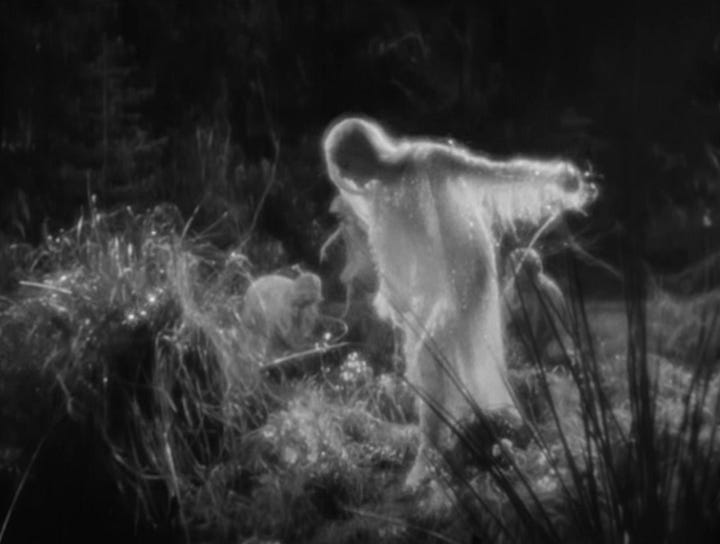
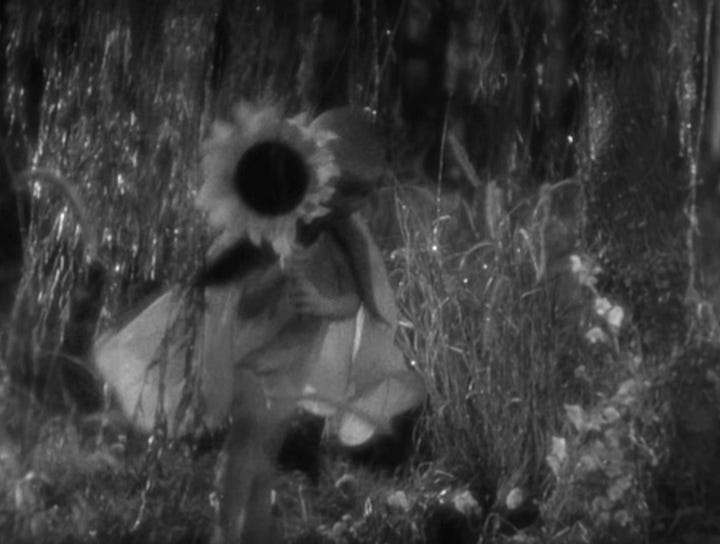
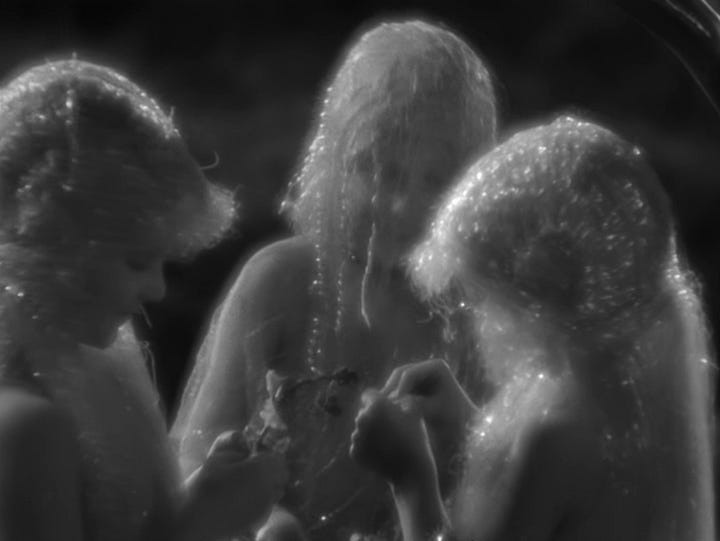
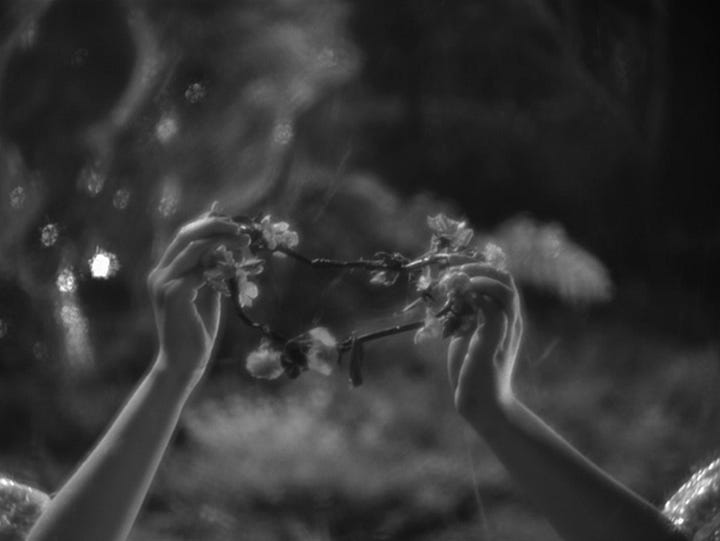
Changelings seem to appear in folklore from every culture. Cape Verdean parents hold a party for newborns when they’re a week old. It’s called a ‘noite sete’ (seven day party). Not having one makes the baby vulnerable to witches. They steal the child but don’t leave a replacement. I actually attended one on zoom a few weeks ago. I like that we keep these traditions alive. My sister once explained it this way: back then, without modern medicine, the chances of a child surviving past a week were slim. So they disguised the threat of disease and death as witches.
I often think of the scene in Tangled when Mother Gothel kidnaps Rapunzel. The snarl she wears glaring at the king and queen as she leaps from the window, the baby hidden in her cloak. It’s a very dramatic flourish. And there’s real hatred in her eyes.
A baby is a dream made real, but dreams are the fairies’ favorite meal.
From The Changeling mini series.
I felt compelled to watch the show after seeing the trailer. But I knew I had to read the novel by Victor LaValle first.
It’s something quite rare: a modern fairy tale with black heroes. The Changeling is different from most, because while it’s a powerful story about parenthood and the modern anxieties of the digital age, the fairies and monsters are real.
One of the characters, Cal, remarks that fairy tales were always for adults. We still need fairy tales, however unsophisticated they may seem. As Cal says, “A great fairy tale tells the truth.”
When Apollo Kagwa meets Cal, she enlists his help in making sock puppets for a Rapunzel show. She tells him the story as they work, and he remarks that it’s not for kids. No, but when peasants sat around a fire first telling these stories, they were trying to assuage their fears about their children’s safety.
“The new fears are the old fears, and the old fears are ancient.”
Quite a poignant reflection on parenthood. But the brilliance of this novel is how a number of themes are interwoven: racism, misogyny, postpartum depression, poverty, single motherhood, and white entitlement and violence. A potent modern fairy tale.
Apollo Kagwa was raised by his mother Lillin after his father Brian West vanished. He has a recurring dream where Brian returns, a haze of clouds obscuring his figure. What frustrates Apollo the most is that in the dream, his father didn’t take Apollo with him. Years later, a box marked ‘improbabilia’ is left outside the door. The box contains mementos of a past life: movie tickets, receipts, Lillian and Brian’s marriage certificate, and the picture book Outside Over There by Maurice Sendak. The book is a recurring motif throughout the novel.
In the book, Ida’s father is away at sea. She plays her horn and goblins sneak into the room and steal her baby sister. Apollo yearns to know why his father read this book to him over and over. Growing into a voracious reader, he starts his own rare book business, Improbabilia, when he’s still just a kid. In the world of rare books however, a nerdy black boy is still seen as a threat.
Apollo wonders if he’s a monster. Is that why his own father abandoned him?
Apollo meets the love of his life in one of the most magical places on earth: the library.
The librarian has her hands full when a man approaches, yelling that he is in distress. “From a distance you’d have thought you were watching an ogre and an elf square off.” Apollo means to lend a helping hand, but the librarian remains poised.
“Can you hear me?” she asks the man. He huffs that he has ears and she calmly responds that she does too, so can he lower his volume? Cowed, maybe even entranced, the man follows her orders. Apollo watches this exchange and feels he would also do the same.
She’s a small woman, the librarian. Meet Emma Valentine. (Did you catch their names? He’s the sun god and she’s a love token: lacy hearts, chocolates. ‘She learned her hands in a fairy tale / and her mouth on a valentine’).
Echoing his father’s own pursuit of Lillian years before, Apollo asks Emma out many times but she declines. Five months after they meet she finally agrees to a date, explaining that she kept turning him down because she’s going to Brazil. For an entire year. But Apollo waits for her. Sure he dated other women while she was gone, but “his heart wouldn’t buy it.” And it’s his face she wants to see when she gets back. So he falls asleep at the airport waiting for her flight to get in.
Their troubles probably started in the Dunkin Donuts at the airport. A witch in Brazil tied a red string around Emma’s wrist and told her not to cut it. Only when her three wishes came true would it fall off of its own accord. She’s been wearing it for six months. But Apollo, brazen god that he is, cuts the string, promising that her wishes will come true.
A criticism of this novel is that the story doesn’t properly begin until halfway through. But that misses the point entirely. It actually does start when Apollo’s parents are introduced. We need to be fully acquainted with his and Emma’s histories.
They are married and Emma becomes pregnant. They opt for a natural home birth, to the dismay of family and friends. Emma is so stubborn that when labor pangs overtake her in a fancy restaurant, she refuses an ambulance. She and Apollo instead board the subway. She is a woman undaunted, that fearless elf standing up to an ogre.
Their son Brian is born on “a stalled A train in the bowels of the earth.”
“Their child teetered between his mother and the world; in one place and another; alive and in the ether of the womb.”
Oh my. What magic, what miracle. But as lovely and mysterious as Brian’s entry into the world, there seems to be a warning in the air. Fairy tale characters have very little control over their fate after all.
It starts gradually. Emma receives strange texts - pictures of Brian and Apollo that he never took - that disappear from her phone. Without proof it gets explained away as exhaustion and stress. But the texts become more alarming, and when Emma starts acting desperate, Apollo loses his patience. New mothers often feel unmoored and ignored. It seems like a classic case of post partum depression. Shame on Apollo for being so dismissive.
Emma has grown suspicious of baby Brian. She keeps insisting that he isn’t a baby at all. There’s an old Scottish word for it - glamour. “It’s an old kind of magic. An illusion to make something appear different than it really is.”
Social media is full of illusions. And danger. Alarmist though it may sound, posting pictures and videos of your kids online is a lot like inviting a vampire into your house, as one of the sordid characters in this tale explains. Children are still taken by the trolls today.
To say more would be giving too much away and that breaks the spell. Like all my favorite fairy tales, I’m going to read it again.


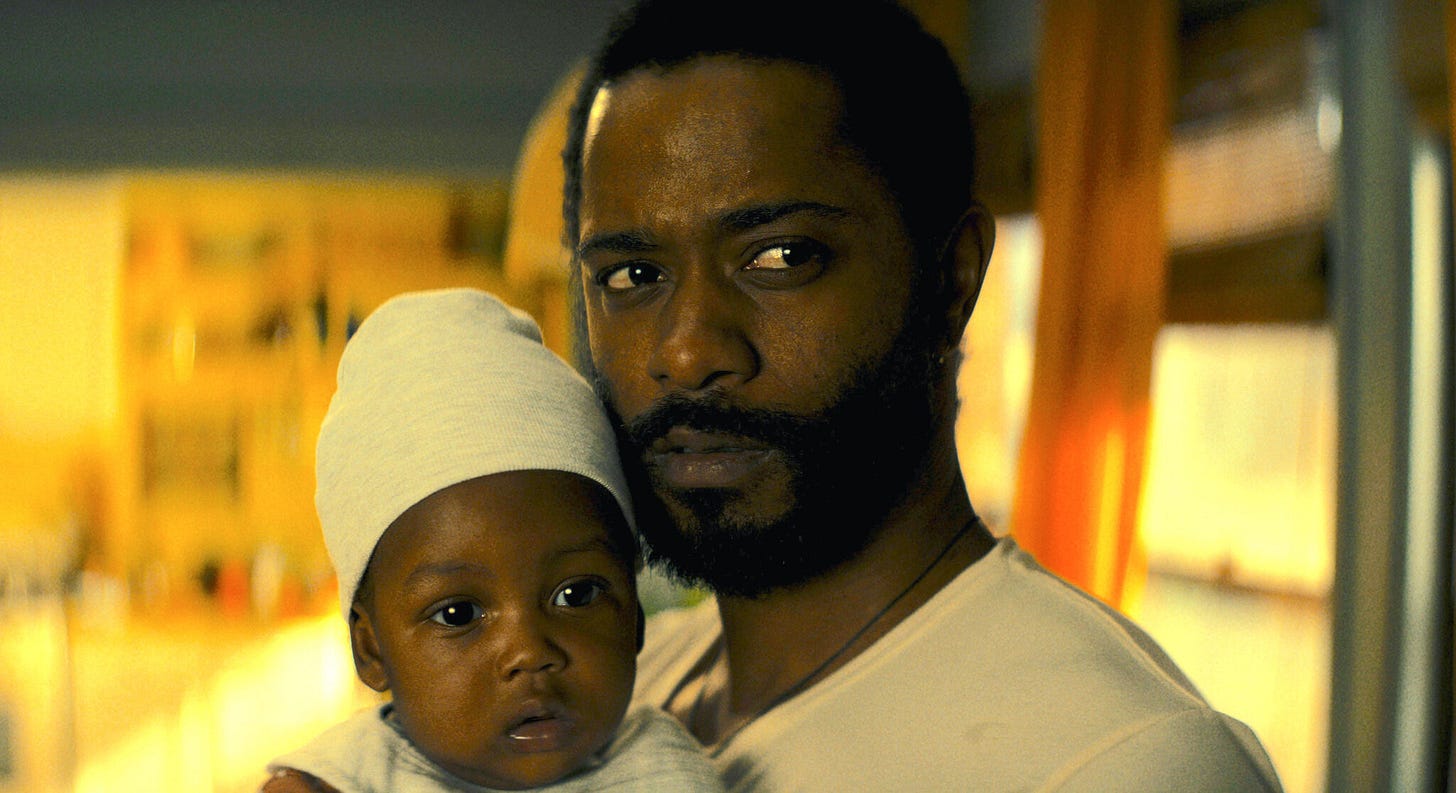
great read